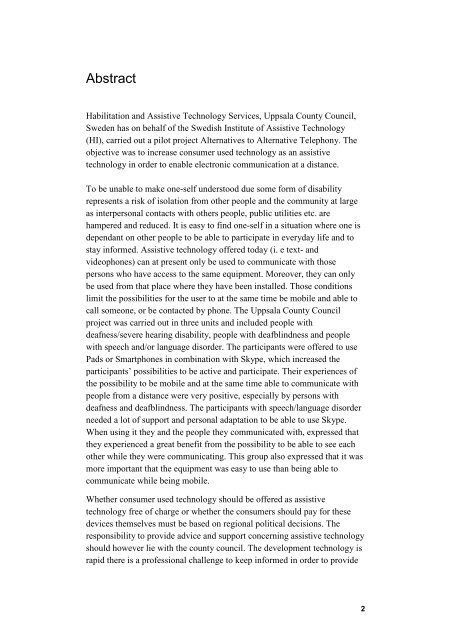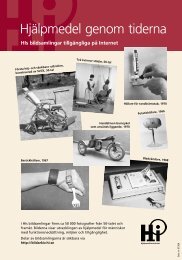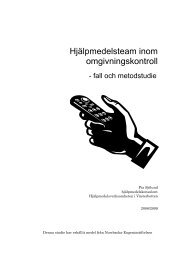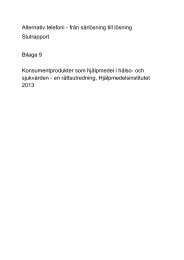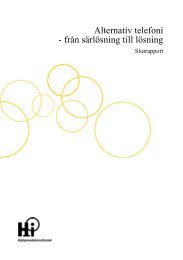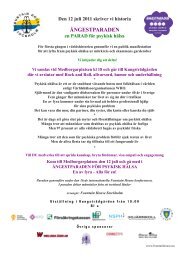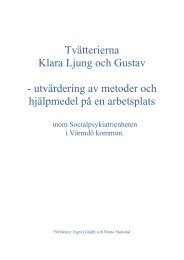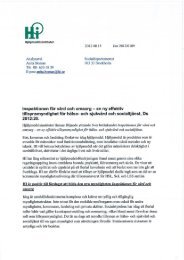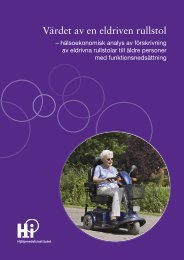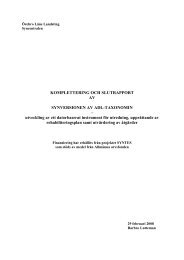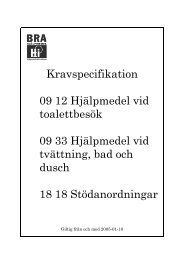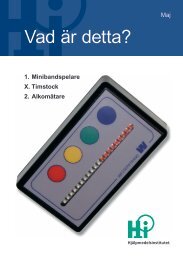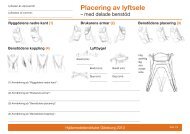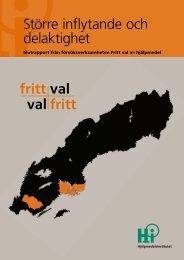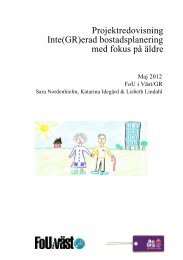Slutrapport Uppsala inklusive bilaga 1-6 - Hjälpmedelsinstitutet
Slutrapport Uppsala inklusive bilaga 1-6 - Hjälpmedelsinstitutet
Slutrapport Uppsala inklusive bilaga 1-6 - Hjälpmedelsinstitutet
Create successful ePaper yourself
Turn your PDF publications into a flip-book with our unique Google optimized e-Paper software.
Abstract<br />
Habilitation and Assistive Technology Services, <strong>Uppsala</strong> County Council,<br />
Sweden has on behalf of the Swedish Institute of Assistive Technology<br />
(HI), carried out a pilot project Alternatives to Alternative Telephony. The<br />
objective was to increase consumer used technology as an assistive<br />
technology in order to enable electronic communication at a distance.<br />
To be unable to make one-self understood due some form of disability<br />
represents a risk of isolation from other people and the community at large<br />
as interpersonal contacts with others people, public utilities etc. are<br />
hampered and reduced. It is easy to find one-self in a situation where one is<br />
dependant on other people to be able to participate in everyday life and to<br />
stay informed. Assistive technology offered today (i. e text- and<br />
videophones) can at present only be used to communicate with those<br />
persons who have access to the same equipment. Moreover, they can only<br />
be used from that place where they have been installed. Those conditions<br />
limit the possibilities for the user to at the same time be mobile and able to<br />
call someone, or be contacted by phone. The <strong>Uppsala</strong> County Council<br />
project was carried out in three units and included people with<br />
deafness/severe hearing disability, people with deafblindness and people<br />
with speech and/or language disorder. The participants were offered to use<br />
Pads or Smartphones in combination with Skype, which increased the<br />
participants’ possibilities to be active and participate. Their experiences of<br />
the possibility to be mobile and at the same time able to communicate with<br />
people from a distance were very positive, especially by persons with<br />
deafness and deafblindness. The participants with speech/language disorder<br />
needed a lot of support and personal adaptation to be able to use Skype.<br />
When using it they and the people they communicated with, expressed that<br />
they experienced a great benefit from the possibility to be able to see each<br />
other while they were communicating. This group also expressed that it was<br />
more important that the equipment was easy to use than being able to<br />
communicate while being mobile.<br />
Whether consumer used technology should be offered as assistive<br />
technology free of charge or whether the consumers should pay for these<br />
devices themselves must be based on regional political decisions. The<br />
responsibility to provide advice and support concerning assistive technology<br />
should however lie with the county council. The development technology is<br />
rapid there is a professional challenge to keep informed in order to provide<br />
2


